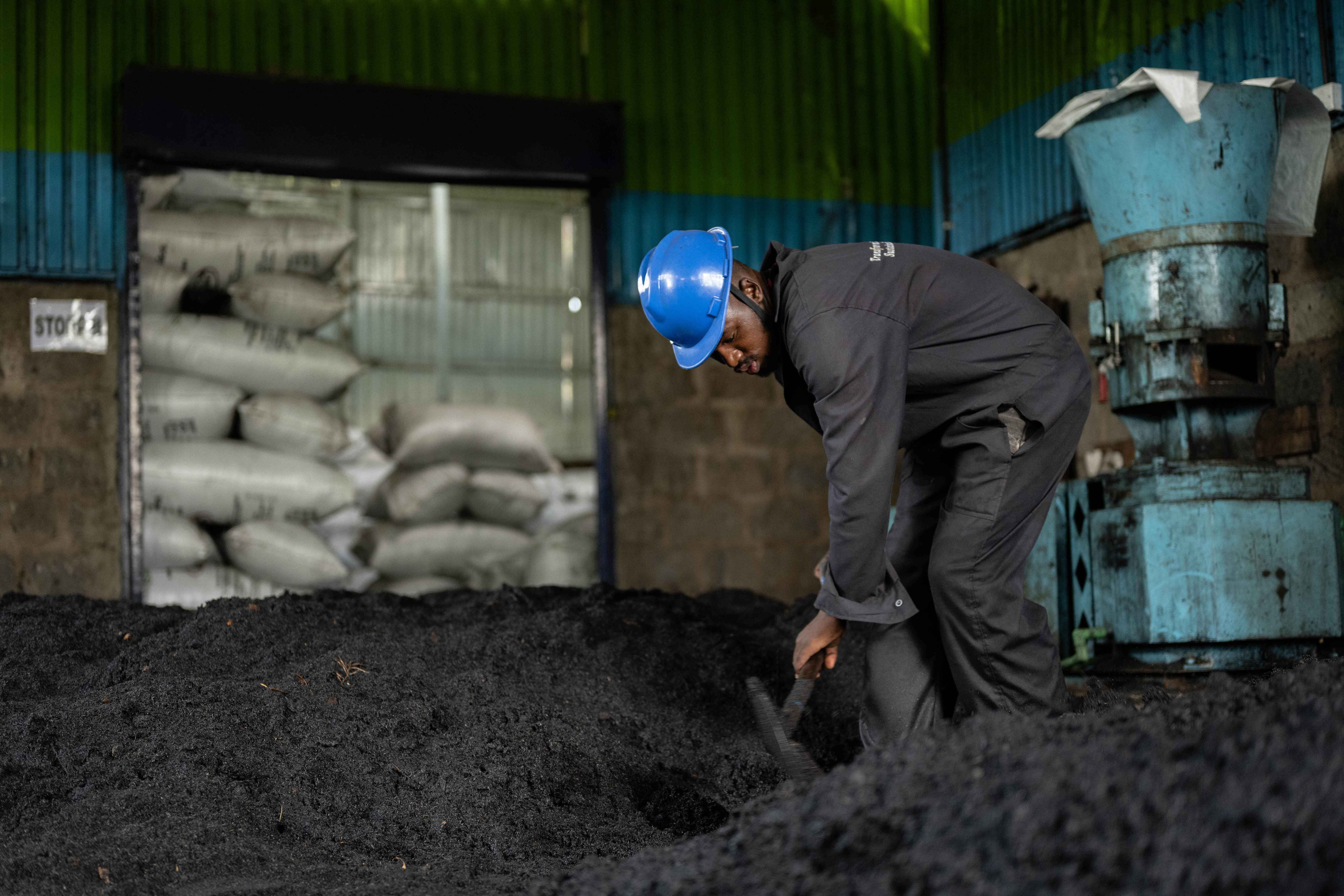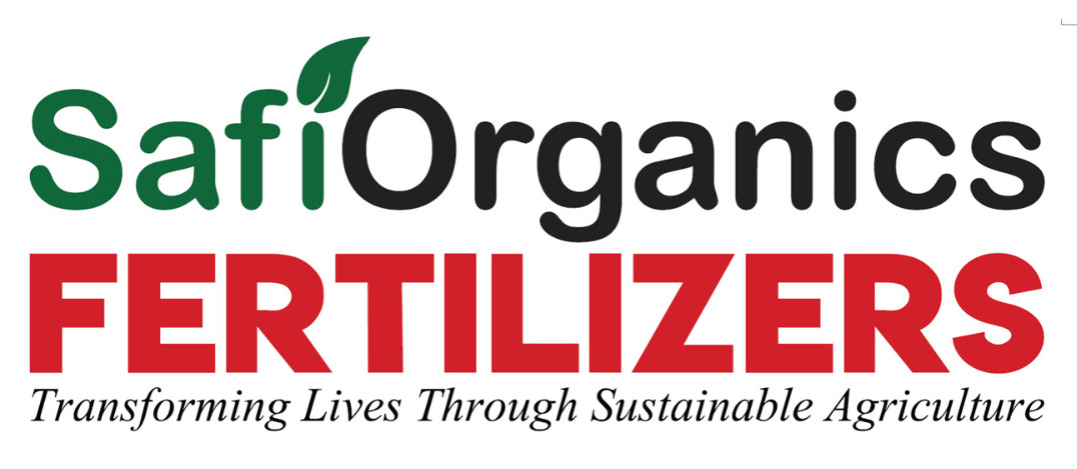Safi Organics – AlphaMundi Foundation

About
The Safi Organics – AlphaMundi Foundation partnership offers a scalable, decentralized method of organic fertilizer production that is customizable according to available feedstock and soil requirements. The carbon-negative fertilizer promotes soil health and increases crop yields and incomes for smallholder farmers in Kenya.
Investing in Impact
P4G has awarded the partnership with about US $320,000 in grant funding.
About 13% of Kenya’s soils are acidic, which translates to approximately 63% of arable land – a theme that is playing out across much of sub-Saharan Africa where up to 65% of the farmland is unproductive or otherwise degraded.
The decline in soil health, attributed to the inappropriate use of fertilizers, leads to reduced crops yields and land degradation over time.
Safi Organics is a Kenyan startup that has developed an innovative technology to produce customizable carbon-negative organic fertilizer using locally available agricultural waste and labor. Safi’s anaerobic conversion technology can process agricultural waste into fertilizer in under 30 minutes.
In early pilots and peer-reviewed studies, the startup’s fertilizer blend has been proven to improve soil health, crop yields and reduce chemical runoff into water bodies. On average, the 3,500 commercial rice farmers using Safi’s fertilizers have seen their yields increase by 27% and their net incomes by 70%.
Safi plans to trial two business models for scaling growth:
1. Franchise model: In this model, local entrepreneurs or organizations can set up Community Production Units for local farmers to sell feedstock and buy organic fertilizer. Safi will charge US $5,000 to cover the costs of this micro franchise. In the first year of operation of these community units, Safi will provide ongoing business support and maintenance free of charge. Thereafter, the startup will charge 5% of the profits made by the micro franchisee.
2. Corporate partnerships: Safi will establish corporate partnerships with agricultural equipment companies, where it will license the hardware technology for the fertilizer converters. The startup will also charge a usage fee for running its proprietary control system for custom-tailored fertilizer production.
The logistics of transporting agricultural waste to the fertilizer processing plants is key since the crop waste is converted and stored in a decentralized system across multiple farms. Safi’s elegant solution includes having farmers process their waste using local conversion materials. This converted waste is resistant to spoilage and can be stored until the farmer comes to town to buy agricultural inputs such as seeds during planting season. The farmer drops off this converted biomass at Safi’s local processing plant and neither party incurs any additional transportation costs.
The AlphaMundi Foundation will support Safi Organics with connections to farmer networks, feasibility studies evaluating the potential of alternative feedstocks, and monitoring and evaluation.
During the partnership funding period Safi Organics aims to expand into three new regions in Kenya, establish 10 demonstration plots, offer specialized training to 20,000 new smallholder farmers on the benefits of organic fertilizer, and identify at least 10 alternative biomass sources. The startup aims to raise more than US $2 million in investment and avoid about 10,000 metric tons of carbon emissions.
The partnership comprises the following partners: Safi Organics (lead business partner); AlphaMundi Foundation (lead administrative partner).


.png)
